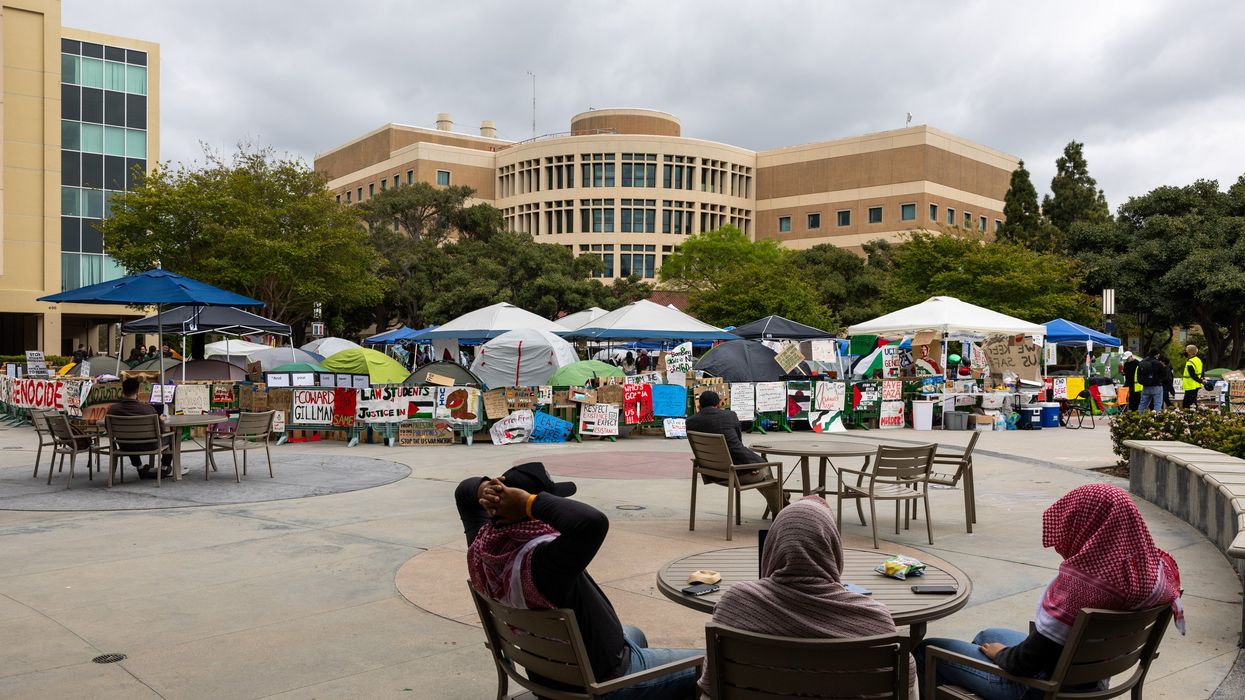Jamison is a retired attorney.
While I was in law school in the 1970s, I attended a function where I met a Palestinian. It was at least a year after Israel defeated Egypt and Syria when they attempted to destroy Israel in the October 1973 war.
As we walked together back from a bathroom that was some distance from the function, the Middle East came up. My acquaintance commented that Israel should not exist. When I replied that Arabs should accept Israel as a fait accompli, his agitated response reflected such deep anger at the displacement of Palestinians that it was apparent our brief acquaintance did not allow for further discussion.
This deep anger is now reflected in the protests of Muslim and multi-ethnic students and outsiders at numerous college campuses. Palestinian anger is understandable. In the late 1940s the United Nations sanctioned the creation of the state of Israel, displacing Palestinians in a land that was Palestinian. The Jews’ determined defense of this new state is equally understandable for a people who long ago also once occupied that land and found themselves despised, ignored, and subjected to genocide in Europe.
The recent atrocities committed by both sides in the West Bank and Gaza reflect mutual white-hot hate. The worst atrocity is Hamas’ monstrous killings, rapes, seizure of hostages and deliberate exposure of innocent Gazans to Israel’s retaliation. This was done knowing that Israel’s retaliation would lead to the collateral killing and maiming of innocent Gazans. Is it possible for these two peoples and their supporters, through civil discourse, to reach an agreement that prevents the annihilation of one side or the other or indefinite reciprocal atrocities? Can tempers be cooled on college campuses?
Reasonable time, place and manner restrictions can be placed on the exercise of free speech. Some say colleges failed to enforce such restrictions and campus rules when pro-Palestinian protests were nascent. They contend this failure allowed protests to grow out of control, leading to violent confrontations with Jewish students and the authorities. What can be done now?
It is not too late to try meaningful dialogue. First, instead of canceling graduations and valedictory addresses outright, allow — in an appropriate, large setting — a leading student to moderate a panel consisting at least one Muslim student leader, at least one Jewish student leader, and administrators and professors who support each side. At the end of their exchanges, allow questions from the audience, and then allow the moderator to sum up and present their views.
Second, publicize the time, place and manner of the event well, including a clear rule that hecklers or those who shout down a speaker will be promptly removed, with advance notice that there will be plenty of security on hand to allow for a meaningful event.
Third, should this event bring sufficient calm, perhaps graduation could follow in a day or two. Valedictory addresses for graduations perhaps can be deemed already given.
Fourth, publicize the issues for discussion at the forum, which might include:
- What is the meaning of “From the river to the sea”? Can it mean, and is it possible for there to be a peaceful, integrated Israeli-Palestinian state?
- Alternatively, a two-state solution must be fully considered.
Some of the key related questions are:
- Would Israel accept a two-state solution?
- Would the Palestinian Authority and its supporters accept a two-state solution?
- What should be the boundaries of the two states?
- How do Palestinians, Jews and the world deal with the hate Hamas and its supporters have for Jews and the hate for Palestinians in parts of the Jewish community? Can they be reconciled? How can they be kept from undermining a two-state solution?
- Can it be agreed that the slaughter of innocents by either side cannot be tolerated and the seizure of hostages by either side can never be tolerated?
- Can the forum’s exchange of views help restore calm and reasonable time, place and manner limitations on First Amendment rights.
All college campuses are supposed to be for learning. Let’s use this opportunity to turn these horrible events into a learning experience. It may be too late, but every effort should be made to bring calm through dialogue and a teaching experience.
As for my own answers to the questions, a two-state solution is essential. Hamas is a terrorist organization and must be thoroughly vanquished. I also believe that Benjamin Netanyahu is wrong in flatly rejecting that solution.
Israel’s government must accept this, as must the Palestinians, but a radical new approach to the solution appears to be needed because prior efforts have failed.
In my blog in the Times of Israel, I suggested a new approach that relies on ancient and modern precedents to try to end or minimize the historical cycle of violence between Israelis and Palestinians that will surely continue under a return to the status quo ante. Based on the premise that Hamas must be vanquished and based on the premise that a two-state solution must protect Israel’s right to exist, the West Bank must be enlarged for a Palestinian state, including removal of all Israeli settlers and preventing their return. Gaza would become part of Israel. Palestinians would generally be removed from Gaza to the new Palestinian state or to foreign nations willing to accept them. Israel would rebuild Gaza. Both Israel and the international community would need to provide intense ongoing support for the new Palestinian state. I suppose there could be a lively discussion of these and other ideas at the suggested forums.
A return to the status quo ante is a recipe for ongoing reciprocal violence. A new paradigm for peace, even if it should ultimately fail, must be tried. The current situation on college campuses also calls for a new paradigm of peace, through organized civil dialogue with all involved honoring why colleges exist.




















Trump & Hegseth gave Mark Kelly a huge 2028 gift